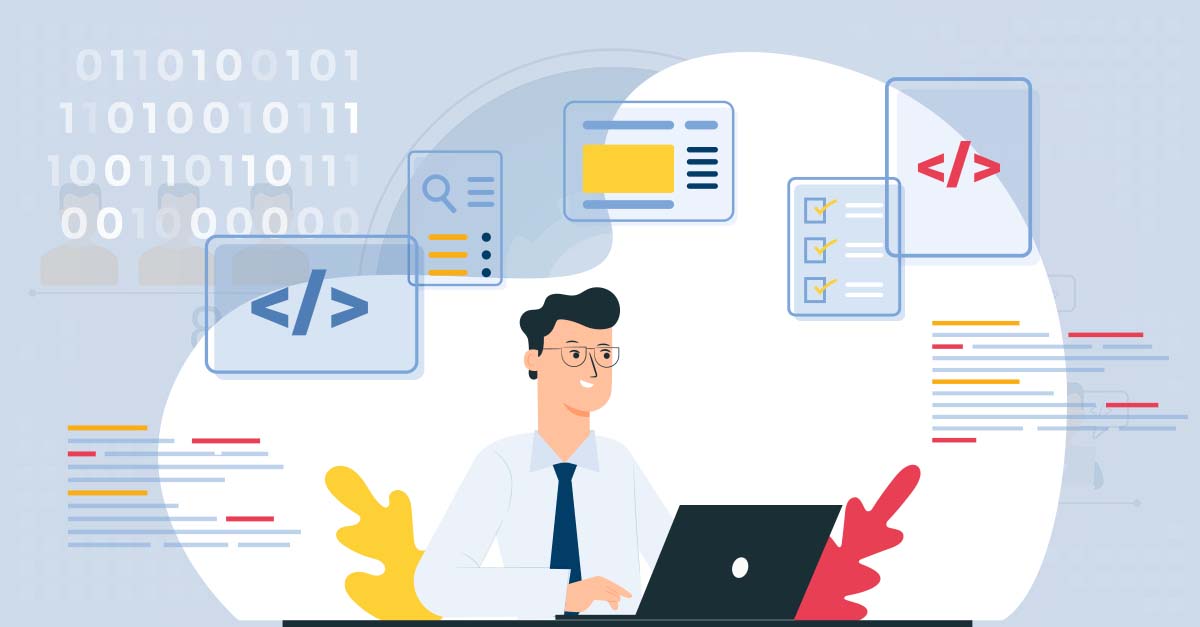What is Citizen Development and how it empowers Organizations
João Simões de Abreu, February 10, 2022
All businesses are software businesses. The organizations that understood this early on had a great advantage. For instance, a bank that understood it is not a business using technology, yet the technology that shapes itself into a bank has a better engagement with the digital-first new generations and most likely had exceptional performance during the most challenging times of the recent pandemic.
Digital is conquering all fronts of organizations. And according to Forrester, “in the digital era, the software is an expression of the business”. As a result, all qualities of an organization, from policies to data and know-how, must be translated into software – which, in turn, must change as fast as the business changes.
As opposed to a decade ago, software today must be built to change. However, how can organizations keep changing their software when most IT departments either have a long/full backlog and cannot find more developers for their teams?
Enter Citizen Development
Part of that answer lies in Citizen Development, a term gaining more and more traction among leading organizations digitizing their operation. Citizen development consists of empowering people outside IT with the ability to develop their own software. As a bonus: these people often understand the requirements better than the developers. When guided well, the also leads to higher performing teams: a true mix of business & IT in one team taking ownership.
However, there is a problem: in its primitive way, software development is highly complex. To code software manually, people have to follow the training and build experience, and it requires people to actually like to do that. Often not the case for business people.
Citizen developers are not meant to develop software using traditional methods. Instead, they are meant to use tools that ease the development in such a way that a mix of logic and business knowledge makes software development intuitive: software by & for the business. Citizen Development is such a significant trend and opportunity that Gartner predicts that, by 2024, 80% of technology services and products will be built by people outside IT.
Among the many factors that enable the democratization of technology development beyond IT professionals, AI-assisted and modeling / low-code tools are on top of the list. These tools can be used by both regular developers to boost their productivity by (very) high factors (depending on the context that factor can be to nearly 100 times) and by business people without any background in technology development.
In some organizations, the more tech-savvy and adventurous employees already make their own apps in standard tools, such as Excel spreadsheets, to meet the needs existing systems cannot answer. Yet there are complications with that approach: very often, these “band-aid solutions” are not supervised by the IT departments and raise questions when it comes to compliance, security, and information leaking.
In the model-driven and low-code space, most advanced solutions assure quality from scratch, avoid generating errors, are easily supervised by the IT department, and privacy to guarantee compliance is a built-in feature.
Moreover, by using the same tool, business, and IT people will also create what we now know as ‘Fusion Teams’ – a reality that fosters cooperation among the two different developers (professional and business citizens) to boost digitization and output better products to the market.
In the process of digitizing operations and granting people the ability to use digital applications, we passed from using physical spreadsheets to using digital spreadsheets, such as MS Excel, Access, Notes, etc. However, it is time to take the next step in the evolution of the digital workforce and evolve to low-code solutions to empower tech-savvy business people to develop their management applications.
The evolution has four main stages:
Genio, Quidgest’s model-driven and AI-assisted tooling for software development, empowers business people with the ability of developing their own tools through a swift, secure, and errorless method. And reverse engineer existing old/legacy applications to add the required new functionality on top of it!





